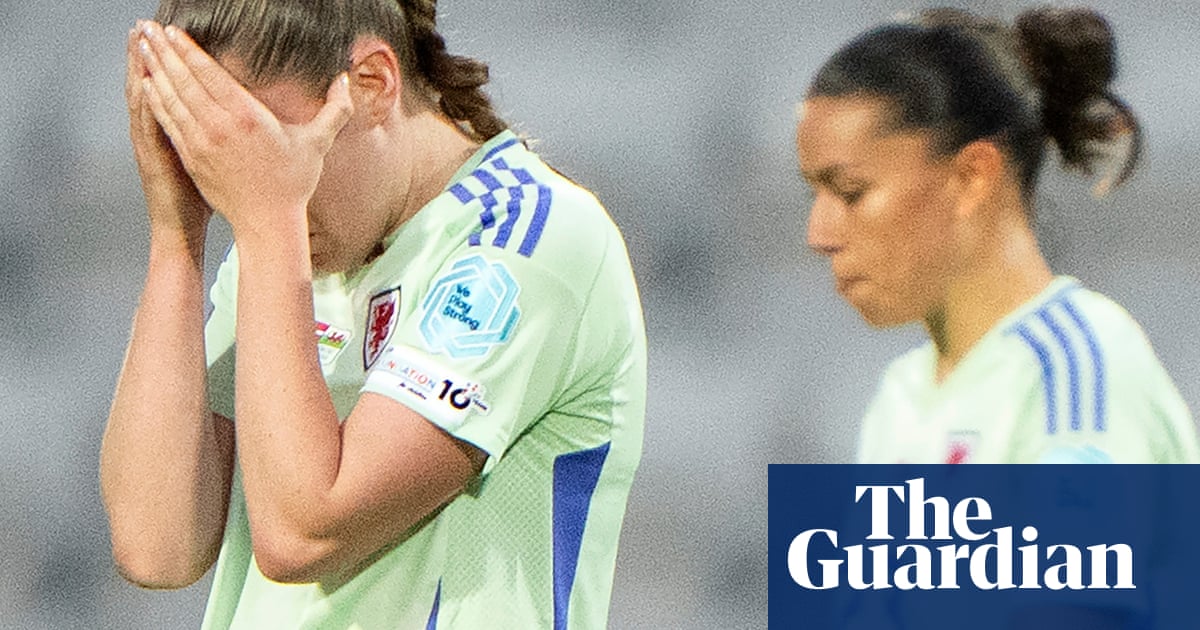Wales and Scotland both had their likely relegations confirmed while the Republic of Ireland enjoyed a late winner on a dramatic night of Women’s Nations League action.
Waleslost 1-0 away toDenmarkin controversial fashion in Group A4. Rhian Wilkinson’s team had realistically required victory in Odense to avoid being sent down to League B but Pernille Harder’s 48th-minute strike consigned them to a third defeat of the campaign and bottom spot.
It could have been a different story had Jess Fishlock’s first-half effort been awarded, with her follow-up shot seemingly crossing the line but not given by the officials and with no VAR in operation, Wales went down narrowly.
A 2-1 home loss to Denmark in April put Wales on the verge of relegation from the top tier and they got off to a poor start with defender Mayzee Davies forced off after only six minutes. The 18-year-old sustained a knee issue which could put in doubt her participation in this summer’s European Championship.
The Welsh did regroup and a moment of controversy occurred midway through the half when Ceri Holland was denied by Maja Bay Østergaard and Fishlock sent an effort towards goal, but Stine Ballisager got back to clear.
Replays later appeared to show the ball had crossed the line, but it remained goalless at the break after Amalie Vangsgaard squandered a fine opportunity for Denmark and Harder was twice thwarted in quick succession.
It would not take Harder long after half-time to break the deadlock, though, as the Danish forward slotted home in the 48th minute. Wales had chances but relegation to League B was confirmed.
Melissa Andreatta began her tenure asScotlandhead coach with a 1-0 defeat byAustriawhich confirmed their relegation and meant they are without a point from their five games to date. The lacklustre home side were fortunate to go into the interval level at Hampden Park with goalkeeper Lee Gibson in fine form.
However, the more dominant visitors broke the deadlock in the 62nd minute of the Group A1 clash when ever-dangerous attacker Julia Hickelsberger glanced in a header from a corner.
Scotland picked up later in the second half but ended the game still bottom of the tabl. Their final fixture of the campaign comes against the Netherlands on Tuesday for their final fixture, which will also be thefinal international outing of their captain Rachel Corsie, who came on as a substitute on Friday.
Barcelona star Ewa Pajor scored twice within the opening nine minutes asPolandromped to a 4-0 Group B1 win overNorthern Irelandin Belfast. Pajor celebrated her 100th senior international cap with a quickfire double at Seaview before Paulina Tomasiak and Adriana Achcinska put the game beyond Tanya Oxtoby’s side, who travel to Bosnia and Herzegovina on Tuesday needing a point to finish second behind the Euro 2025-bound Poles.
Sign up toMoving the Goalposts
No topic is too small or too big for us to cover as we deliver a twice-weekly roundup of the wonderful world of women’s football
after newsletter promotion
The hosts enjoyed a huge escape inside the opening 60 seconds when Pajor lobbed advancing goalkeeper Jackie Burns and saw her attempt bounce over the bar and on to the roof of the vacant net.
However, the respite proved temporary and Pajor gave Poland a fifth-minute lead and then doubled her tally four minutes later after catching the keeper in possession.
Paulina Tomasiak made is 3-0 before Adriana Achcinska added a fourth shortly after the restart. Northern Ireland finished strongly with Rebecca Holloway and Rebecca McKenna both going close to a consolation goal before substitute Emily Wilson hit the bar at the death.
Substitute Emily Murphy’s first senior international goal handed theRepublic of Irelanda 2-1 comeback victory inTurkeyto secure second spot in Group B2.
Murphy’s 89th-minute winner, which came after Busem Seker’s own goal had cancelled out Kader Hancar’s opener at the Esenler Stadium, sent Ireland into Tuesday night’s home clash with group leaders Slovenia just three points adrift.
